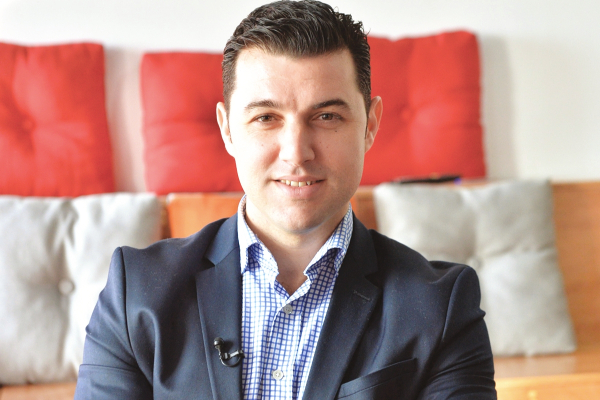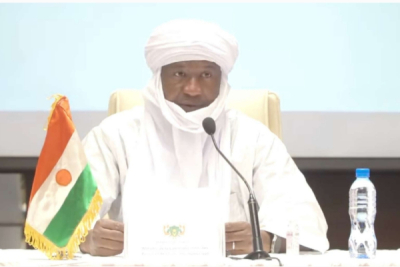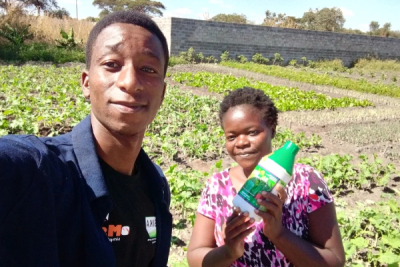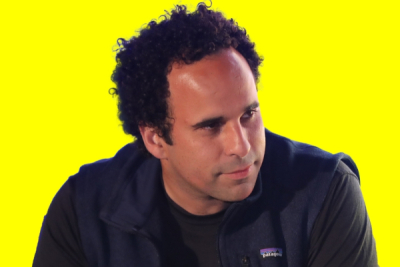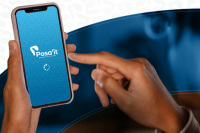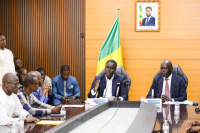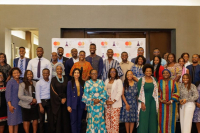Participation in programs like the AWS Generative AI Accelerator can help African startups gain visibility on a global scale, attracting investors and partners, and ultimately driving economic growth and technological advancement in the region.
Amazon Web Services (AWS) has unveiled a $230 million investment to boost generative AI startups globally, AWS announced June 13. The move aims to accelerate innovative AI applications across sectors, supporting startups with AWS credits, mentorship, and resources.
"We'll assist startups in launching and scaling businesses, unleashing new AI applications," said Matt Wood, VP of AI Products at AWS.
The AWS Generative AI Accelerator, a 10-week program, will onboard 80 startups, offering hands-on expertise, mentorship, and up to $1 million in credits each. Applications are open until July 19.
Selected startups gain access to AWS compute, storage, and AI chips like AWS Trainium and AWS Inferentia2, plus Amazon SageMaker.
AWS's dominant 41.5% share of the cloud computing market underscores its significant influence. This level of control suggests that initiatives like the AWS Generative AI Accelerator can shape global AI innovation, including emerging markets like Africa.
Hikmatu Bilali
On a mission to revolutionize how organizations access talent, he leverages his expertise in artificial intelligence (AI) and technology to transform the talent acquisition landscape fundamentally.
Amine Khayatei Houssaini (photo) is a Moroccan tech entrepreneur, founder, and CEO of Kwiks. He aims to establish Africa's first marketplace for independent headhunters.
Founded in Morocco in 2014, Kwiks initially focused on providing quick CV delivery to French companies. Today, Kwiks has evolved into a digital recruitment platform dedicated to businesses, supported by a community of independent recruitment experts across Africa. Leveraging artificial intelligence, the platform offers an efficient recruitment process with real-time performance visibility.
Kwiks' mission is to democratize access to headhunting services for SMEs worldwide. The platform reduces recruitment costs and optimizes post-integration talent tracking. To date, Kwiks boasts over 450 specialized recruiters in various fields.
Beyond his work at Kwiks, Amine Khayatei Houssaini is also the founder and managing partner of Pronatlas. Launched in France during Euro 2016, Pronatlas offers companies an online platform for sports betting among colleagues. As a freelance NoCode consultant, he uses his skills to implement automated processes using NoCode tools.
Amine holds an engineering degree in MIAGE (computer methods applied to business management), with a specialization in information systems audit, obtained in 2008 from the University of Bordeaux. His professional career began that same year at ALTEN, an IT company, where he served as a project manager.
In 2011, he joined the consulting firm AdWay Conseil, working until 2013 in roles ranging from management consultant to business manager. In 2018, he became a member of the start-up commission of the General Confederation of Moroccan Enterprises (CGEM).
In 2019, Amine was appointed business partner for the Moroccan branch of BABEL, a Spanish technology multinational. Between 2020 and 2022, he served on the board of the Moroccan Federation of Information Technology, Telecommunications, and Offshoring (Apebi).
Melchior Koba
African countries are experiencing a substantial lag in digital development, a situation attributed to various factors. Effectively addressing these delays requires a clear understanding of these underlying issues.
Niger's Minister of Communication, Posts, and Digital Economy, Sidi Mohamed Raliou, officially launched the Digital Economy Diagnostic of Niger (Niger DE4A) on Wednesday, June 12th, in Niamey.
This initiative aims to comprehensively assess the current state of digital services penetration and usage within the country. "The evaluation will provide policymakers with actionable and prioritized recommendations to accelerate the digital transformation of Niger's government and its socio-economic landscape," emphasized the Ministry of Digital Economy.
The program, supported by the World Bank, aligns with broader efforts to assist African nations in implementing the African Union's Digital Transformation Strategy. This strategy seeks to equip every individual, business, and government body on the continent with the necessary digital skills by 2030, ultimately contributing to lifting Africa out of underdevelopment.
The digital economy diagnostic will unfold in three key phases. The first phase involves consultations with relevant stakeholders to gather essential data. This will be followed by the development of a detailed report outlining current challenges and opportunities in Niger's digital landscape. Finally, the program will propose concrete strategies and measures to maximize the country's potential for digital development.
The overall goal of the assessment is to identify and address obstacles hindering Niger's digital progress. Key challenges include insufficient technological infrastructure, limited digital skills among the population, and restrictive regulations. Overcoming these hurdles will not only enhance government efficiency but also stimulate innovation and drive economic growth in Niger.
Samira Njoya
The tailored solution was developed by two tech entrepreneurs to support farmers, particularly smallholder farmers.
FarmHouse is an agritech solution developed by the Zambian startup eMsika. It allows users to purchase agricultural products and seek farming advice from an AI-based chatbot. The startup, based in Lusaka, was founded in 2016 by Gilbert Mwale and Elton Chirwa. On Thursday, June 13, Gilbert Mwale announced the company's plans to expand into Tanzania, Nigeria, Egypt, and Zimbabwe.
The solution features a mobile application available on iOS and Android, which has already been downloaded over a thousand times, according to Play Store statistics. After downloading the app, users create an account to access the various services offered by the startup. FarmHouse focuses on providing technical advice on farms and selling quality agricultural inputs for the needs of small poultry and livestock farmers in urban areas.
“Using FarmHouse, farmers can access training, inputs, and connections with other farmers, while eMsika recently launched a farmer membership programme called Farmhouse Plus. It has also set up a physical store, and partnered with multinational suppliers,” Gilbert Mwale told Disrupt Africa.
The startup offers subscriptions, with the most affordable priced at 149 Zambian kwachas (approximately $5.64), granting access to several services. This subscription model, along with the profit margin from the sale of various agricultural products, generates revenue for FarmHouse. The company claims to have trained around 8,000 farmers through its training programs.
Adoni Conrad Quenum
A seasoned financial analyst, he honed his skills at investment banks and technology firms. Now, as an entrepreneur, he's leveraging technology to disrupt the financial landscape in Egypt, making investment opportunities more accessible for the everyday Egyptian.
Ahmad Hammouda (photo) is an Egyptian entrepreneur specializing in financial technology. He is one of the co-founders and the CEO of Thndr, a digital investment platform designed to simplify investing in the MENA (Middle East and North Africa) region.
Founded in 2020, Thndr aims to democratize access to the tools and resources needed to achieve financial freedom. With a brokerage license from the Egyptian Financial Regulatory Authority (FRA), the company offers securities brokerage services.
“The idea for Thndr began in 2016 while I was advising on the sale of a bank. I realized how inaccessible financial products were to the general population. That's when I decided to make investing accessible to everyone my life's mission,” said Ahmad Hammouda in 2020.
To support its over 3 million users, the company launched Thndr Learn, an educational platform that teaches everything one needs to know about money management. Thndr also offers Thndr Claps, a daily newsletter that delivers easy-to-understand financial news to users' inboxes.
Ahmad Hammouda graduated from the American University in Cairo in 2009 with a bachelor's degree in finance and economics. He also holds a Chartered Financial Analyst (CFA) designation, obtained in 2011 from the CFA Institute.
His career began in 2009 at Ernst & Young Egypt, an audit, advisory, tax, and legal services firm, where he was an intern. He then became a consultant at The Advisors, a financial and management consulting firm. In 2012, he joined Pharos Holding for Financial Investments as an investment banking analyst.
In 2013, he became vice president at CI Capital Financial Group. In 2017, he was hired by Uber in Egypt, where he held successive roles as Director of Operations and Logistics and General Manager.
Melchior Koba
She aims to assist businesses and financial institutions in achieving their goals. She offers smart, data-driven solutions to support them in their decision-making processes.
Tebogo Mokwena (photo) is a South African entrepreneur and technology enthusiast. Co-founder of Akiba Digital in 2018, she has led the startup since 2020, helping financial institutions make better decisions.
Akiba Digital is a financial platform that leverages artificial intelligence and data to democratize access to financial opportunities. The company enables small and medium-sized enterprises, as well as consumers, to achieve their financial goals.
The company aims to "credit more accessible to customers who have been previously excluded by the credit bureaus and credit invisible for a long time, including small business & customers who are either unbanked or underbanked," explained Tebogo Mokwena in 2023.
As a data aggregator, Akiba Digital helps financial institutions create unique profiles of their clients to enhance decision-making. With advanced data analysis and risk assessment tools, the company automates client verification processes. This allows financial service providers to detect and mitigate fraudulent activities, protecting both their operations and their clients.
Before Akiba Digital, Tebogo Mokwena founded Pach-it in 2014, a women-led web and mobile development startup. Their first product, Funda Nathi, is an educational app aimed at helping disadvantaged South African students achieve their academic potential.
The entrepreneur is a graduate of the University of California, Los Angeles (UCLA), where she earned a bachelor's degree in genetics in 2014. In 2015, she received a bachelor's degree in computer science, genetics, and biochemistry after three years of study at the University of Cape Town. She also holds a master's degree in machine learning, obtained in 2019 from the University of Lugano.
Between 2014 and 2017, Tebogo Mokwena served as president of World Merit, a community for global change-makers. In 2015, she was associated with iXperience, a South African tech company, and in 2016, she worked as a software developer at Allan Gray Proprietary, a private investment management firm. From 2016 to 2017, she worked as a digital consultant for McKinsey & Company.
Melchior Koba
In Côte d’Ivoire, digital talents, particularly data analysts, are among the most sought-after in the job market. To strengthen the workforce in this sector, Yango continues to pursue targeted training initiatives.
Ride-hailing platform Yango announced the expansion of its Yango Education program on Wednesday, June 12. The initiative provides free online introductory data analysis courses to Ivorian citizens aged 18 and over who have completed their basic education. The courses are designed by Yango engineers.
"This expansion allows us to offer free access to these courses to a wider community," said Kadotien Soro, Yango's National Director in Côte d'Ivoire. "We believe education is key to driving innovation and creating growth opportunities in the digital economy."
The program offers an 80-hour online data analysis course in Python and SQL, delivered over a one-month period. Yango will select over 1,500 students throughout the year through application reviews and personal interviews. Priority will be given to those aiming for careers in data analysis. The program is also open to Yango's partner drivers, couriers, and their families.
This initiative builds on Yango's commitment to fostering African entrepreneurship by equipping young people with skills to collect, analyze, and visualize data for business development. The first phase of the program benefitted approximately 250 participants.
Samira Njoya
BotswanaPost, has partnered with Software Group -a global technology company specialized in digitalization and integration solutions for financial service providers- to introduce DigiPost, Software Group announced June 4.
This solution, which will be an integral part of the BotswanaPost Posa'it super app, will enable individuals and small businesses to resell postal services, improving financial inclusion across the country.
Modernizing the administration to improve efficiency and equip it for the challenges of the new economy is a key focus for Senegal's President, Bassirou Diomaye Faye. President Faye is committed to implementing reforms that will optimize governmental effectiveness in this vital area.
Senegal Numérique SA (Sénum SA), the state-run agency responsible for managing Senegal's digital infrastructure, has a new leader. Isidore Diouf (pictured right) took the helm on Friday, June 7, succeeding Cheikh Bakhoum (pictured center) who served for nearly a decade (9 years, 11 months).
Diouf, tasked with executing President Bassirou Diomaye Faye's digital policy, outlined his strategic vision. He views digital technology as an engine for development across various sectors, including economic, industrial, healthcare, and education. He positions Sénégal Numérique, designated a "strategic state enterprise," as central to this transformation.
Diouf identified key elements for success: building robust and secure digital infrastructure, acting as a central hub to coordinate government digital programs, fostering collaboration with Information Systems Departments (DSI) within the government, and establishing strong partnerships with stakeholders in the digital space.
Diouf will build upon the accomplishments of his predecessor, Bakhoum, whose initiatives have positioned Senegal as a leader in the West African digital landscape. Notable achievements include the Smart Senegal project, the deployment of nearly 4,400 kilometers of fiber optic cable, the SHARE submarine cable, the construction of the national data center in Diamniadio (commissioned in 2021), and the digitization of numerous administrative procedures.
The new director's focus is on bridging the digital divide within Senegal and diversifying state revenue. According to official 2021 statistics, the digital economy currently contributes about 3.3% to GDP, while internet penetration sits at roughly 46%. The Sénégal Numérique 2025 (SN2025) strategy aims to increase the digital economy's share of GDP to 10%.
Samira Njoya
Access to detailed employment data enables targeted interventions to address critical issues such as high youth unemployment, poverty, and limited economic diversification.The initiative aligns with Africa's broader goals of leveraging technology and education to foster inclusive growth.
World Data Lab, in partnership with Mastercard Foundation, launched the Africa Youth Employment Clock in Ghana, World data lab announced on June 12. This innovative tool offers real-time data on job growth, providing critical insights into employment trends and opportunities for Africa's youth.
“The Africa Youth Employment Clock is a first of its kind providing consistent, comparable labour market statistics forecasting till 2030 for youth employment in Africa. Our aim is to ensure that decision makers are equipped with the right information to effect change for the youngest workforce in the world. We are proud to be partnering with the Mastercard Foundation to shape a better understanding of youth employment.” said Vice President Strategic Engagements, World Data Lab Dr. Reshma Sheoraj.
Since its inception, the Africa Youth Employment Clock has been pivotal in fostering discussions and actions to empower Africa's youth. Offering comprehensive data for all 54 African states and detailed sub-national data for Ghana, Kenya, and Rwanda, it serves policymakers, stakeholders, and advocates focused on youth empowerment and economic development. More than a data tool, it provides actionable insights, enabling informed decisions and impactful strategies to address unemployment, poverty, and economic diversification challenges.
Mastercard highlights a significant gap between the number of young people seeking employment and the limited opportunities available. In sub-Saharan Africa, 18 million jobs need to be created annually to absorb new labor market entrants, yet only 3 million formal jobs are currently being generated, as revealed by the African-Europe Foundation in its 2022 report on Migration and Mobility.
To address this, the Mastercard Foundation aims to help 30 million young Africans secure dignified work by 2030. This goal aligns with initiatives like the Africa Youth Employment Clock, which democratizes data and informs decisions in public and private sectors. Additionally, the foundation supports the Youth Forward Initiative, connecting youth to jobs in construction and agriculture, and the Youth Think Tank, which involves young people in researching and documenting community challenges and aspirations.
Hikmatu Bilali
More...
In July 2023, Sonatel became the first Senegalese operator to acquire a 5G license in the country, for nearly $57 million. In March 2024, it announced the launch of ultra-high-speed commercial internet exclusively for residential and business customers.
Senegalese telecom company Sonatel (Orange) announced the launch of its 5G mobile offers on Saturday, June 8. The operator promises its subscribers "instant download and streaming speeds, as well as increased responsiveness for real-time applications such as online gaming, virtual reality, telemedicine, e-education, and many others."
To access the service, Sonatel subscribers will need 5G-compatible devices and must be in areas already covered by the network. Sonatel's 5G network currently covers the cities of Dakar, Thiès, Saint-Louis, Diourbel, Kaolack, and Louga, with 176 sites deployed. The company plans to extend the next-generation mobile network coverage to the entire Dakar region by the end of 2024.
In March, Sonatel announced the launch of commercial 5G services in Senegal, nearly simultaneously with its competitor Saga Africa Holding Limited (Free). However, the initial offers from the historic operator were limited to fixed 5G for residential and business customers. On May 21, Sékou Dramé, the company's CEO, announced the launch of commercial 5G mobile offers for June 1.
The launch of Sonatel's 5G mobile service is expected to democratize the service in a Senegalese telecom market dominated by mobile consumers. It should also help the company strengthen its market-leading position, particularly in the Internet segment. Sonatel claims the status of "first 5G operator in Senegal and, to date, the only one offering 5G services."
According to data from the Regulatory Authority for Telecommunications and Posts (ARTP), Sonatel held a 65.2% share of the Internet market with 19.8 million subscribers as of December 31, 2023. In the mobile phone market, the operator had 12.6 million subscribers, representing a market share of 56.4%.
Isaac K. Kassouwi
With the release of the second version of its mobile app in June 2024, the fintech company Zepargn is making significant strides in its growth process. The company aims to launch new features and offer additional products to its users.
Zepargn is a fintech solution developed by a young startup from Benin, allowing users to save money by setting financial goals. Founded in 2023 by Alao Lawal, this Cotonou-based startup aims to democratize access to financial services, enabling individuals to manage and optimize their savings easily and securely, regardless of their banking status.
"Zepargn is a financial companion designed to help you achieve your dreams. It allows you to set personalized savings goals, whether for a major purchase, a dream vacation, or an emergency fund. Zepargn automates the savings process, sends reminders, and tracks your progress, making it easier to realize your financial aspirations," explains the startup.
The mobile app is available on iOS and Android and has already been downloaded over a hundred times. To access the company's various services, users must download the app and create an account in just a few clicks. They then configure a savings goal and define the parameters. After this setup, users can start making regular or one-time deposits from their bank cards or mobile money accounts.
From the dashboard, users can track their savings progress with various tools provided by the startup. This allows them to know their status at any point in their savings journey. Alao Lawal told We Are Tech Africa that Zepargn has over 1,500 active users and more than 15 million CFA Francs (24,370 USD) saved on the platform since its launch.
"However, to continue increasing adoption, we plan targeted awareness campaigns to educate the unbanked about the benefits of our solution, continuous improvement of the user experience based on feedback, and the launch of new attractive features and products such as interest-bearing and group savings and credit," he added.
The Beninese fintech is present in ten countries but aims to strengthen its presence in the West African sub-region. It plans to introduce a financial education feature with targeted content in a gamified format, expand its service offerings to other population segments, including small businesses, and establish strategic partnerships with financial and insurance institutions to offer diverse and tailored products to meet the population's needs.
Adoni Conrad Quenum
His goal is to boost the efficiency of companies' field sales teams. He offers mobile technologies that help them achieve their objectives.
Sam Clarke (photo) is the co-founder and CEO of Skynamo. Hailing from South Africa, he leverages technology to support the country's sales teams, providing them with the information, analytics, and freedom necessary to meet and exceed their companies' goals.
Founded in 2012, Skynamo offers a mobile sales app designed for manufacturers, wholesalers, and distributors employing field representatives. This app automates repetitive administrative tasks that slow down and bore salespeople, allowing them to save time, strengthen customer relationships, and increase sales.
Skynamo also provides business owners and sales managers with better control and greater transparency. With a real-time dashboard, they can monitor all field sales activities and analyze the results. The Skynamo app integrates with various ERP and accounting software, enabling sales representatives to access up-to-date information on prices, customers, and inventory even when they are on the road. The company manages nearly 500,000 client visits, 3 million customer relationships, 2 million products, and has recorded 130,000 orders worth over $70 million for its clients.
In addition to his role at Skynamo, Sam Clarke is an active philanthropist. He sits on the board of the Anna Foundation, an organization that supports underprivileged schools and communities by providing educational, social, and environmental support, as well as essential skills for children.
Clarke holds a master's degree in Computational Electromagnetics from Stellenbosch University, obtained in 2002, and a master's degree in Entrepreneurship from the University of Cape Town, earned in 2007. He has accumulated extensive professional experience working for various South African tech companies. From 2008 to 2012, he was the Managing Director of Magus, the first company he co-founded. Between 2015 and 2019, he served as a Non-Executive Director of Sazo Labs, specializing in virtual and augmented reality software development, and Alchemy-A, a business accelerator in the software and electronics sectors.
Melchior Koba
Alain Ekambi (photo) is a Cameroonian computer scientist and tech entrepreneur. As the co-founder and director of Dikalo, he designs technologies that enable people to connect with friends and family, find communities, and grow their businesses.
Founded in 2017 by Alain Ekambi, Daniel Agnéro, Bitoa Pedenkil, and Kate Awanka, Dikalo is a social network with a mission to become Africa's best. Its priority is to connect people while protecting their privacy. Dikalo also aims to stimulate business growth, create jobs, and strengthen the local economy. Through Hoka, its integrated mobile payment feature, Dikalo enables instant bankless money transfers and receptions.
"Dikalo focuses on Africa with features and services tailored to the continent and its people (stickers, Afro emojis, money transfers, e-commerce, etc.). We are authentically African, something WhatsApp will never be. We need our own communication tools because our revolution is more ideological than technological," said Alain Ekambi in 2019.
In 2014, Ekambi founded Ahomé Innovation Technologies with Togolese entrepreneur Elom Amouh. This consulting firm is based in Germany.
Alain Ekambi holds a degree in computer science, obtained in 2010 from Wilhem Büchner University. After his studies, he worked as a software architect at jambit, a German software services provider. Between 2010 and 2014, he was a software engineer at NTT Data Germany, an innovator in business and technology services.



